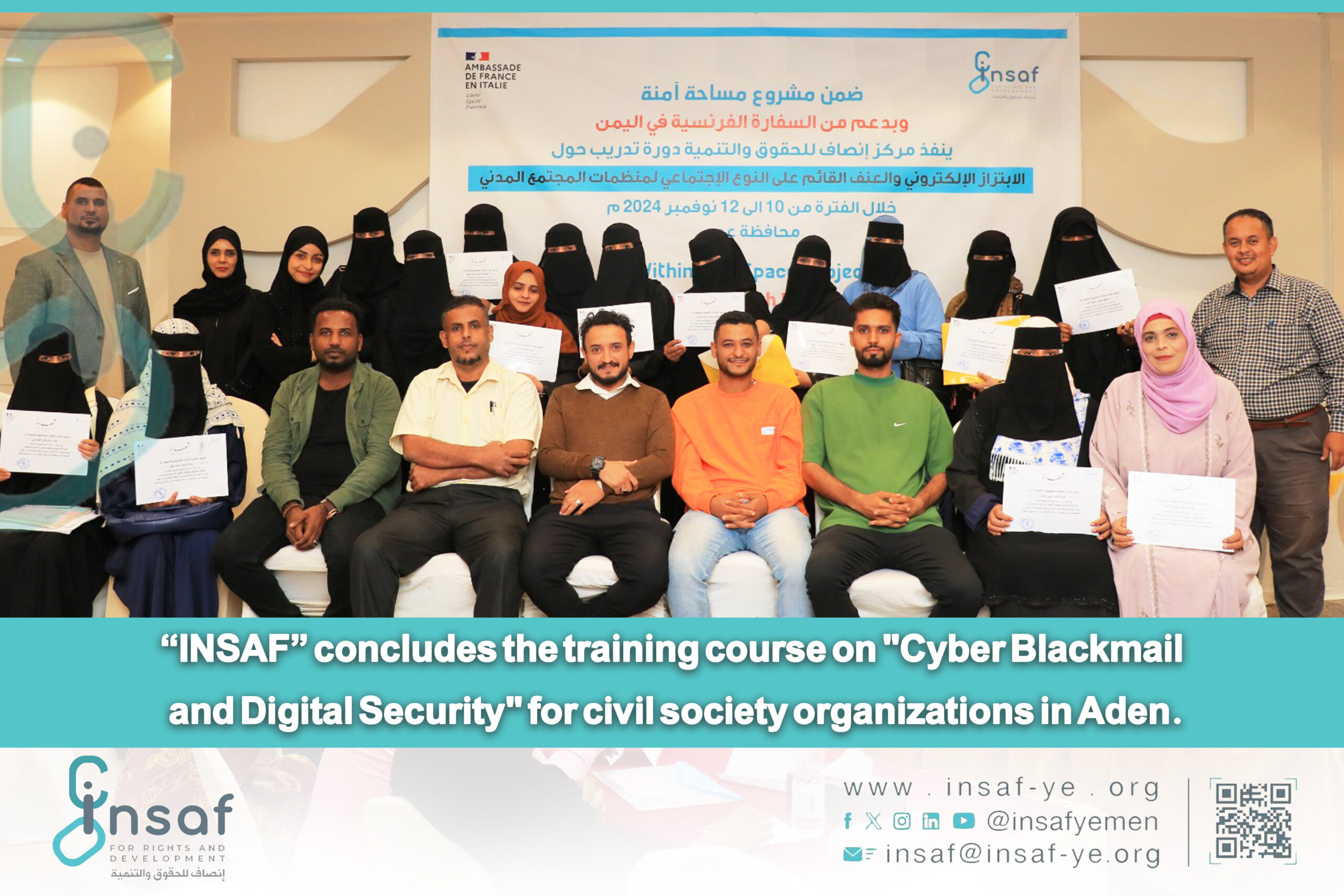Today, the fourth and final phase within Safe Space project, implemented by the “INSAF Center for Rights and Development” with the support of the “French Embassy in Yemen,” concluded in Aden. The project aimed to train civil society organizations on “combatting cyber blackmail and countering gender-based violence” over a span of three days.
“INSAF” Center launched Safe Space project earlier last month, consisting of four stages. The first stage targeted “judges and public prosecutors,” the second stage targeted “security and criminal investigation officers ,” and the third stage targeted “journalists, influencers, and content creators.” The fourth stage targeted “civil society organizations,” which was completed today.
The training course covered various topics, including defining cyber blackmail, information security, cybersecurity basics, handling cybercrimes, avoiding falling victim to cyber blackmail, the role of security and judiciary in protecting women from cyber crimes, and the risks of internet usage.
The trainer, Engineer Qaher Ali Saeed, a cybersecurity consultant, highlighted that the cyber blackmail course is one of the modern and qualitative courses for society, serving as a crucial community awareness tool that aids in building societal peace.
Mr. Salem Al-Husni, President of the Promising Youth Foundation in Aden, expressed gratitude towards INSAF Center for Rights and Development and the French Embassy for conducting such training courses that enhance the capacities of civil society organizations, illustrating how to protect citizens’ rights from violations and preserve criminal evidence from damage and loss, thereby aiding in resolving issues related to cyber blackmail , cybersecurity, and fraud.
Dr. Raja Mohammed Moqbel, President of the Hope Foundation, added that the cyber blackmail course is one of the qualitative courses that targeted civil society organizations and institutions, given the rapid technological advancements. The course proved beneficial in enhancing the capabilities of institution heads and associations in safeguarding electronic information, evidence, and data, as well as preparing them to deal with such modern and societal issues.
Participants in the course expressed their gratitude to the center and the organizers of the course, emphasizing the importance of continuing such training to confront the challenges of the digital age.




